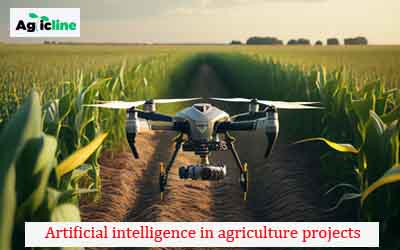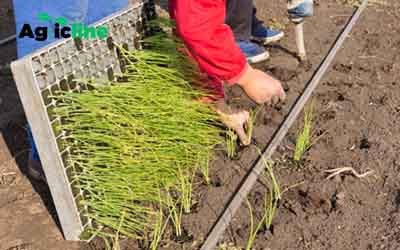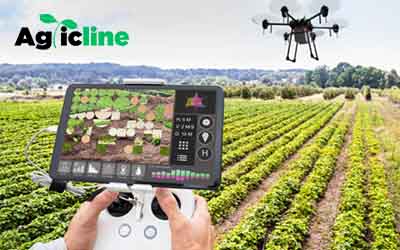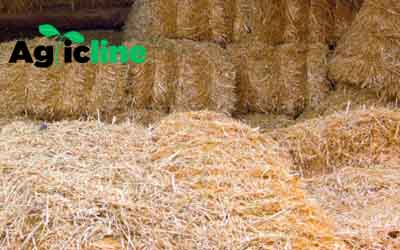Artificial intelligence has impacted and brought change to so many things we do as humans.
In this content, we will talk about Artificial Intelligence in Agriculture projects and some other ways artificial intelligence impacts Agriculture.
This is content you don’t want to miss reading, so I will suggest you read to the last dot to avoid missing out on any of the interesting discussions.
Before we dive into the main Discuss let’s briefly talk about Artificial Intelligence.
Meaning of Artificial Intelligence
According to Encyclopedia Britannica, Artificial Intelligence is the ability of a digital computer or computer-controlled robot to carry out tasks associated with intelligent beings. The term is used when referring to developing systems endowed with the intellectual processes characteristic of humans, such as the ability to reason, discover meaning, generalize, or learn from past experience.
Wikipedia on the other hand defined Artificial intelligence as the perceiving, synthesizing, and inferring information demonstrated by machines, as opposed to intelligence displayed by humans or by other animals.
Now that we understand what Artificial Intelligence is, let’s go to the main discussion.
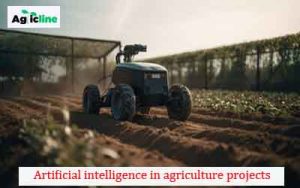
Artificial intelligence in agriculture projects
As we know Agriculture is very important to each country because from there the need for food is settled. When the traditional methods used by the farmers were becoming insufficient to provide for the needs of people, the automation method was introduced.
In the agriculture sector, artificial intelligence is playing an important part as well as transforming the sector. It saves the agriculture sector from diverse factors like climate change, population growth, employment issues in this field, and food safety.
Artificial Intelligence has also enhanced other aspects of Agriculture like crop production and real-time monitoring, harvesting, processing, and marketing.
Here are some areas where artificial intelligence is applied in Agriculture:
Weather & Price Determination:
With the help of artificial intelligence weather forecast, farmers now have access to information on how they weather will be and this helps them to know the particular type of crop to grow, the seeds to sow and when to harvest their crops. And with the price forecasting, the farmers get to know how to price their crops in order to maximize profits.
Health Monitoring of Crops:
Artificial intelligence came up with a fresh application called Plantix to sort out the problems of soil quality degradation caused by increased deforestation. The application was developed by PEAT and sorts out the problem of degradation of soil by identifying the deficiencies in soil, as well as plant pests and diseases.
Farmers can get the idea of using more effective fertilizers that will enhance their harvest after the application must have identified the problems encountered.
The application uses Artificial intelligence image recognition technology to get the images of the plants and then access the information they need about the plants.
Agriculture Robotics:
The Artificial intelligence robots are designed to carry out different functions in the farming sector. They are trained to check crop quality, know when weeds are disturbing the plants and how to control weeds, as well as speedy harvest of crops.
Intelligent Spraying:
The Artificial intelligence sensors detect presence of weed and the areas affected by weeds with ease. This enhances easier and faster spraying of herbicides since they will spray only in the affected areas detected by the AI censor.
The use of AI sprayers reduces the number of chemicals to be utilized and in turn enhance the crop quality as well as save money.
Disease Diagnosis:
Artificial intelligence predictions makes it easier for farmers to know about the diseases. They diagnose diseases using the right strategy and timely too.
This strategy saves the plant’s life as well as the time of the farmer. This AI powered diagnosis is done using the images of the plants which are processed using computer vision technology.
With this technology, plant images are divided into diseased and non-diseased parts and the diseased part cut and sent to the laboratory for more diagnosis after the detection. The technique assists farmers in finding out the deficiency of nutrients, pests and many other findings that will help them get the best from their farming.
Precision Farming:
This is a technique that is much accurate and can be a replacement for the labor-intensive strategy of carrying out repetitive tasks in farming.
A typical instance of precision farming strategy in use is the identifying of stress levels in plants and this can be gotten with the use of high-resolution images and different sensor data on plants. The information gotten will be given to a machine learning model as input for stress recognition.
Advantages of artificial intelligence in agriculture
Here are some of the benefits of artificial intelligence in Agriculture
- Automatic Weeding: This method of weeding uses robots and machines to take out weeds from the farm using Laser lights.
The Robots and AI machines which have cameras survey the entire field. The software that is attached to the camera which identifies the weeds, identify and then the AI commands its high-energy lasers to remove these weeds using thermal energy.
- Automatic Harvesting: This technique of harvesting uses artificial intelligence machines and software to carry out the harvesting task.
This software equips the camera to recognize the products to be harvested like fruits and vegetables and after the analysis of the products to be harvested, the machine instructs the AI to pick and collect the products.
The machine picks only ripe products and this is as a result of the fact that the machine works with the historical data it is fed with to detect the products.
- Plant Disease Detection: Artificial intelligence machines and software also help in the detection of diseases in crops.
- Soil Health Monitoring: It also detects deficiencies of the soil to avoid poor yield. That is to say with AI machines, the soil can be checked to know if it has enough nutrients that can help the crops grow.
- Irrigation Management: AI ensures irrigation management in farms through the use of drones equipped with software that uses advanced analytics.
The AI tools collect the high-resolution aerial images as well as get the information about irrigation systems the field needs and also assist in revealing the soil problems such as clogs and leaks.
- Increased productivity: Artificial Intelligence improves productivity of the farm through the automated and autonomous farming operations, AI enabled productions and yield management enhances the net output from the field and other AI enabled services.
With AI the farm yields well and effectively and there are faster operations. Artificial intelligence also Predicts the requirement of pesticides.
Disadvantages of artificial intelligence in agriculture
Even with the numerous benefits gotten from using AI in Agriculture, there are still challenges being faced in the use and here are some of them.
- Data leakage possibilities
- Required skilled laborers
- Lack of knowledge among the public.
- High-cost equipment and infrastructure
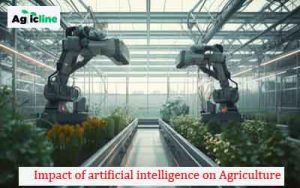
Impact of artificial intelligence on Agriculture
As a result of increasing population and scarcity of land, people decided to use the available land maximally to meet the needs of the growing population
The artificial intelligence just like in other sectors boosts productivity in Agriculture as well and has impacted the Agricultural sector in the following ways.
- Improvement of Harvest Quality as a result of use of different AI machines and software
- Artificial intelligence tackles the Labour Challenge Problems through the employing of the machines to the different tasks to be carried out in the agriculture sector.
- AI Forecasts Weather Data which assists farmers to stay updated with the weather information and also take measures to avoid problems that would have affected his farm as a result of weather. This helps the farmers to improve their yields and profits with reduced risks
- AI reduces the usage of Pesticides because of its ability to detect the areas where weed, pests and other things that might disturb crop yield are in the farm. And this makes the use of the pesticides possible in only the areas where the weed and pests are noticed.
Examples of artificial intelligence in agriculture
Here ae some of the examples of how artificial intelligence is used in Agriculture.
- For Research and development that will help boost productivity in the agricultural sector
- For Greater efficiency and effectiveness
- For Early detection of pests, diseases and weeds
- For Analyzing market demand
- For Managing risks and many other examples that shows the use of AI in Agriculture.
A Final Thought on Artificial Intelligence in Agricultural Projects
Like in other sectors, Artificial Intelligence has impacted the Agricultural sector positively.
The use of AI in Agriculture makes the procedures in managing your farm and crop yield easier and faster since you can easily detect and sort out issues affecting your farm with AI.
Every farmer who wants to get massive yields with less stress should embrace the use of Artificial Intelligence in farm practice.
There are some problems encountered when using Artificial intelligence in farming, but the benefits are sure worth enjoying so as a farmer, you can use AI to your benefit while you also work on ways of minimizing the problems encountered through the use.
